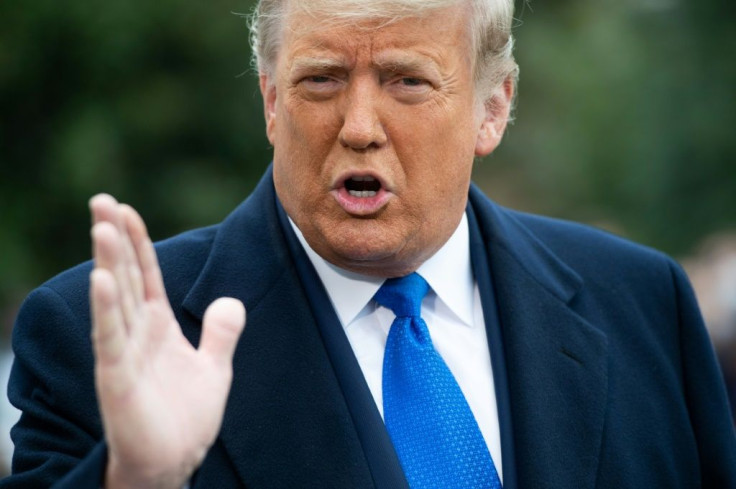Trump Wanted To Attack Iran Nuclear Site, Advisers Said 'No'
KEY POINTS
- Trump asked for options on attacking Iran's main nuclear site
- Reports noted that Iran had enough stockpile of uranium to build two nuclear weapons
- An attack could make it difficult for Biden to resurrect the 2015 nuclear accord
President Donald Trump, on Thursday, asked his national security team for options on attacking Iran’s main nuclear site, but senior advisers talked him out of the dramatic move.
Four officials with knowledge of the conversation said the meeting occurred a day after the U.S. received reports that Iran’s stockpile of nuclear material had significantly increased.
Trump had floated the idea of attacking the nuclear site before senior advisers — including Vice President Mike Pence and acting Defense Secretary Christopher C. Miller — warned that a strike against Iran risks creating a deeper rift, The New York Times reported.
“He asked for options. They gave him the scenarios, and he ultimately decided not to go forward,” one official said.
The strike would likely target Natanz, a city in Iran that holds a uranium stockpile 12 times larger than permitted under a nuclear deal that Trump had withdrawn from. The Middle Eastern nation had, as of Monday, a 2.4-ton stick of low-enriched uranium, 337.5 kg of which were produced in the quarter.
The stockpile would be enough to produce two nuclear weapons. The process of developing these weapons would require several months, which means Iran would not be able to complete a bomb until late spring.
A report released Wednesday by the International Atomic Energy Agency also said the Iranian government had refused access to a site suspected to contain evidence of past nuclear activities.
The report noted that Iran had just finished moving advanced centrifuges from one of its above-ground plants to an underground site, according to the Times.
While Trump’s advisers believe a missile attack is off the table, the president may still look for ways to strike Iran’s assets and allies, administration officials said.
A strike on Iran would likely lead to a deeper American conflict in the Middle East. An attack could also pose more challenges for President-elect Joe Biden, who promised to revive the 2015 Iran nuclear accord.
In July 2015, Iran and six other countries signed the Joint Comprehensive Plan of Action, or the Iran nuclear deal. Under the agreement, Iran would reduce the number of centrifuges that helped enrich uranium.
It also would reduce its stockpile of enriched uranium by 98%, enough to meet the country’s energy demands without having enough to build a nuclear weapon, Business Insider reported.

© Copyright IBTimes 2024. All rights reserved.






















